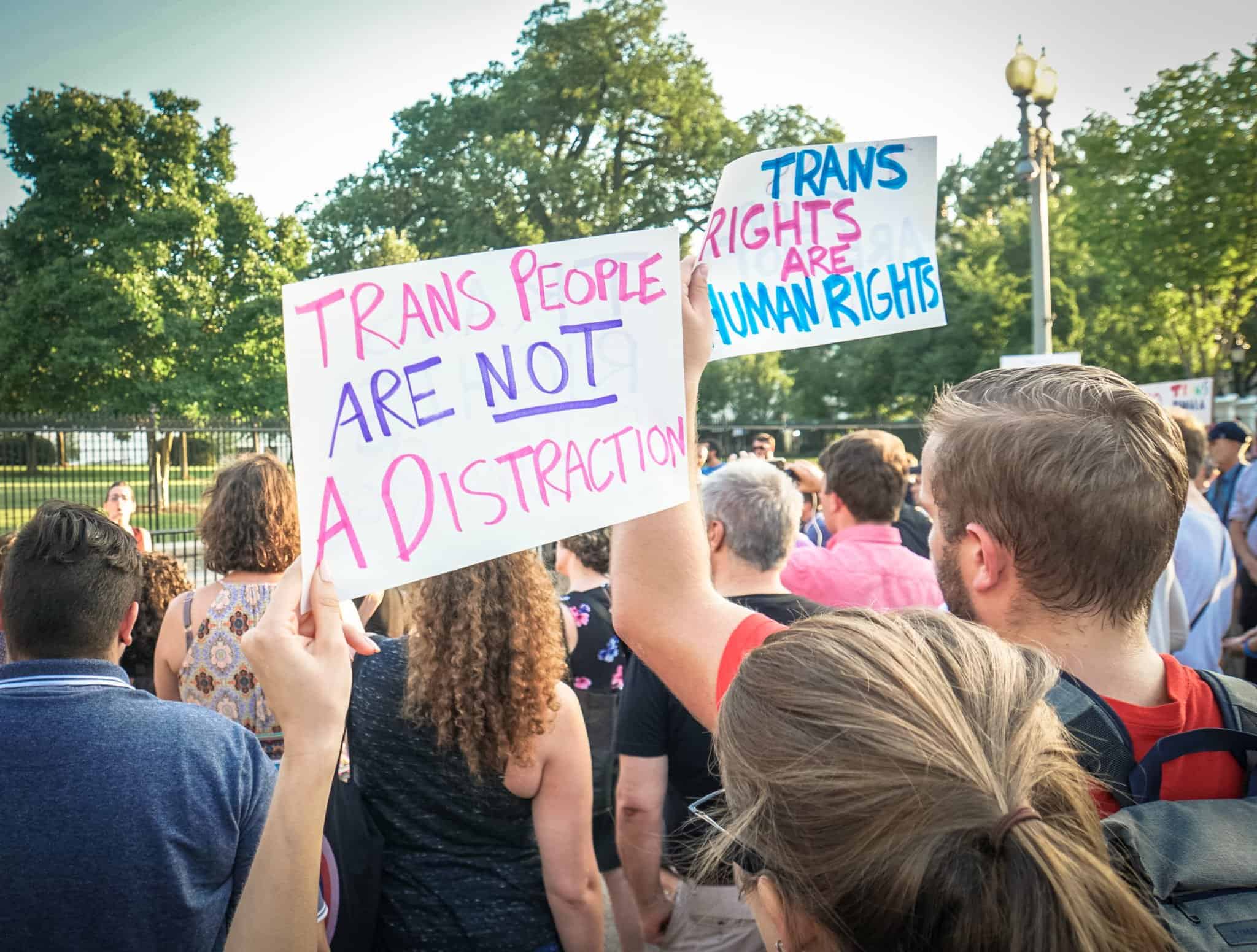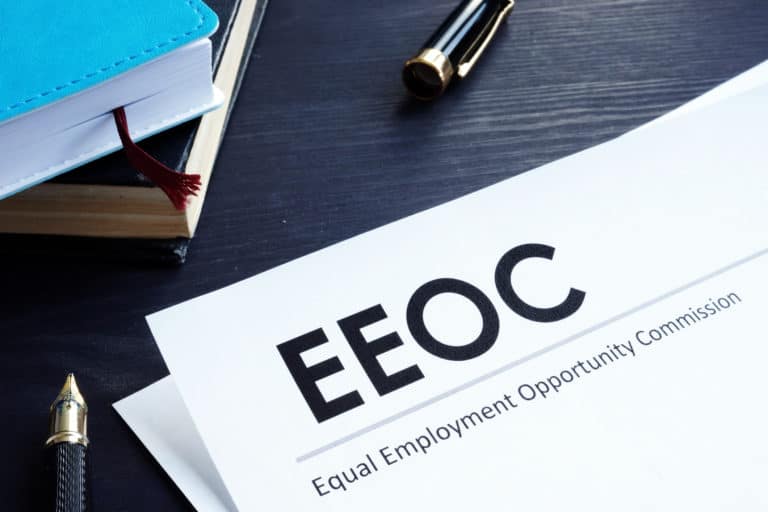
Minnie Che is a student at Harvard Law School.
Title VII of the Civil Rights Act of 1964 protects employees from discrimination based on religion. With respect to religion, 42 USC 2000e(j) requires an employer to “reasonably accommodate” an employee’s beliefs and practices. But while an employer will always be held liable for taking adverse action against an employee for a religious belief, the employer may be able to avoid liability if it can show that to “reasonably accommodate” an employee’s religious practices would impose an “undue hardship” on the employer’s business.
Under this framework, is an employer required to accommodate an employee’s religious beliefs and practices if they might adversely affect other employees? This question arises from a pending case in the District Court of Maryland: Brennan v. Deluxe Corp. Frederick Brennan alleges that he was fired due to his Christian beliefs that precluded him from completing an ethics compliance course because he could not give the answer that the test required on questions involving transgender issues. The employer, Deluxe, mandates that all of its employees complete an online ethics course on appropriate behaviors in the workplace. The course requires employees to answer multiple-choice questions where there is a correct answer that the employee must choose in order to proceed to the next question.
One of the course’s questions asked the employee to identity harassment behaviors towards a fellow employee who was transitioning from male to female. Brennan asserts that his “Christian religious beliefs did not allow him to choose the answer required by Defendant’s Ethics Compliance course.” Subsequent to a 1% salary reduction because of his incompletion of the course, Brennan brings a claim that Deluxe failed to accommodate his religious beliefs and that it would not have been an undue burden to do so. While the court has allowed this claim to proceed to trial, it should ultimately rule against Brennan for the reasons discussed below.
An essential prerequisite to a failure-to-accommodate claim is that the employee must prove that his beliefs are religious rather than simply moral or ethical in nature. The EEOC’s definition of religion is more expansive than that of the First Amendment’s Free Exercise Clause. 19 CFR §1605.1 demarcates religion “to include moral or ethical beliefs as to what is right and wrong which are sincerely held with the strength of traditional religious views.” When evaluating whether a practice is religious, a court must give deference to the employee’s own categorization, regardless if that belief is “acceptable, logical, consistent, or comprehensible to others.”
The EEOC employs the broad interpretation of religion that the Selective Service uses for conscientious objectors. This broader definition of religion can serve as a useful catchall net to prevent employers from mistreating employees on the basis of their beliefs, but it can also be misused by employees. For example, in 2014, the District Court for the Eastern District of Wisconsin ruled in Peterson v. Wilmur Communications that the World Church of the Creator, whose central tenant is white supremacy, was a religion under Title VII. The judge’s reasoning was based on the fact that the plaintiff’s belief played a role in his life comparable to that of a traditional religion.
This case is distinguished from Brennan’s in that Peterson was terminated due solely to his beliefs, which were published in a newspaper, while Brennan’s case is based on his actions due to his beliefs, namely failing to complete the ethics course. The difference between a religious belief and practice is the cornerstone on which this case turns. An employer is never exempted from accommodating an employee’s religious belief, regardless of how reprehensible it may seem. But an employer is relieved from accommodating an employee’s religious practice if it places an “undue hardship on the conduct of the employer’s business.”
A Ninth Circuit case, Peterson v. Hewlett-Packard Co., held that “an employer need not accommodate an employee’s religious beliefs if doing so would result in discrimination against his co-workers or deprive them of contractual or other statutory rights.” In that case, the court ruled that an employer did not have to accommodate an employee’s religious practice when it involved posting anti-gay scriptural passages around the office. The employee’s actions created a hostile and uncomfortable workplace, imposing an undue hardship on the employer.
Here, Deluxe can argue that Brennan’s refusal to comply with the ethics conduct set out in their standards will result in an adverse environment for transgender employees. While Brennan’s religious beliefs are protected, his conduct stemming from those beliefs may not be. Based on the EEOC compliance manual, it would be a burden to excuse an employee from training when that training provides guidelines on how to comply with inclusive workplace policy and equal employment opportunity. Brennan contends that he should be exempt from completing the online course in light of his Christian beliefs, however, this interest should be outweighed by Deluxe’s policy of “inclusiveness and non-discrimination” toward all employees.
The court should find that Brennan’s claim rests on a religious practice that cannot be reasonably accommodated because of its potential to create a hostile work environment for others and future liability for Deluxe, both of which would impose an undue burden on the employer. A broad conveyance of religion can be dangerous when it is used to justify beliefs that infringe upon the rights of others in the workplace, and courts should acknowledge this possibility when dealing with religious discrimination claims.










Daily News & Commentary
Start your day with our roundup of the latest labor developments. See all
February 20
An analysis of the Board's decisions since regaining a quorum; 5th Circuit dissent criticizes Wright Line, Thryv.
February 19
Union membership increases slightly; Washington farmworker bill fails to make it out of committee; and unions in Argentina are on strike protesting President Milei’s labor reform bill.
February 18
A ruling against forced labor in CO prisons; business coalition lacks standing to challenge captive audience ban; labor unions to participate in rent strike in MN
February 17
San Francisco teachers’ strike ends; EEOC releases new guidance on telework; NFL must litigate discrimination and retaliation claims.
February 16
BLS releases jobs data; ILO hosts conference on child labor.
February 15
The Office of Personnel Management directs federal agencies to terminate their collective bargaining agreements, and Indian farmworkers engage in a one-day strike to protest a trade deal with the United States.